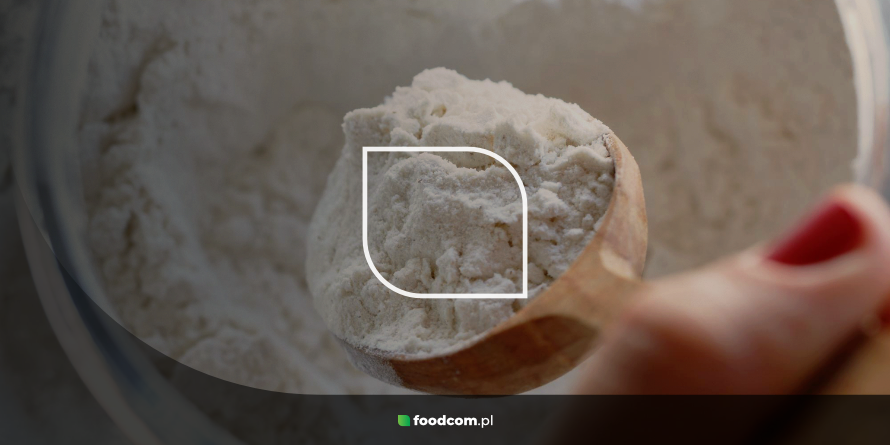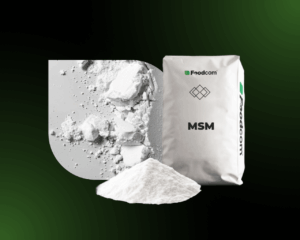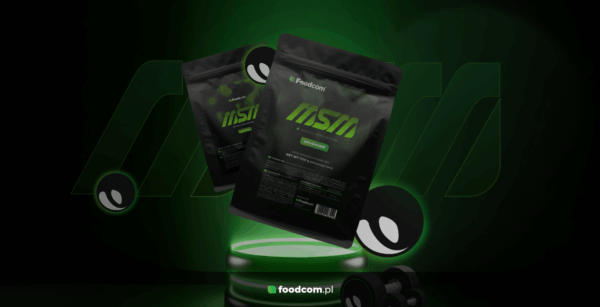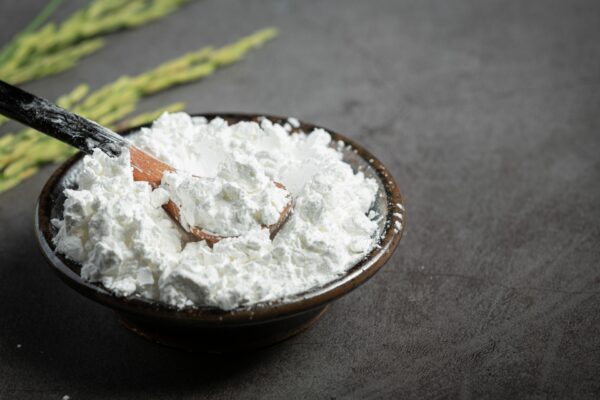- MSM, or methylsulfonylmethane, is a natural source of organic sulphur that supports joint and coat health in horses and other animals.
- Regular MSM supplementation improves tissue elasticity, reduces inflammation and supports regeneration after intense exercise.
- MSM preparations are used not only in the nutrition of sport horses, but also dogs, cattle and poultry.
- More and more companies in the animal feed and supplement industry are including MSM in their product range as an ingredient with high business potential.
Methylsulfonylmethane (MSM) is a natural organic sulphur compound that plays a key role in maintaining joint, skin and immune system health. It is increasingly becoming an indispensable part of the supplementation of horses bred for sport and recreational purposes. Due to its broad health-promoting properties, MSM is also used in the nutrition of dogs, cattle or poultry. Find out what MSM is and why it is worth including it in animal diets.
What is MSM?
MSM, or methylsulfonylmethane, is an organic sulphur compound found naturally in small amounts in fruit, vegetables, cereals or milk. What is organic sulphur and what are its characteristics?
Due to its anti-inflammatory and tissue regeneration promoting properties, it has become a valuable supplement both in the human diet and in animal nutrition. It is a compound that is well absorbed, safe and easy to supplement. MSM is involved in the production of proteins, amino acids, glutathione and collagen and keratin, thus supporting the proper functioning of joints, muscles, skin and hair. It also reduces the production of cytokines – proteins associated with inflammation.
Why is MSM so important in a horse’s diet?
Horses, especially those used in sports, are exposed to high stresses on the musculoskeletal system. Intensive training, competitions or even daily recreational use of horses can lead to micro-injuries and joint overload. Thanks to its anti-inflammatory action, MSM reduces the risk of injury and promotes faster recovery from injuries.
MSM supports equine health by:
- regeneration of cartilage and connective tissue,
- reduction of inflammation, swelling and pain (e.g. in cases of soreness, bruising or injury),
- reduction of muscle stiffness
- improving the mobility and flexibility of joints and alleviating joint degeneration,
- strengthening hooves, skin and coat,
- minimising symptoms of allergy (skin and respiratory) and skin irritation,
- supporting wound healing,
- anti-inflammatory and antioxidant effects.
When to administer MSM? Benefits for the farmer
For breeders, MSM supplementation means better sporting and breeding performance and, therefore, less animal absenteeism due to injury. Regular administration of the compound can also result in improved external appearance of animals – skin, coat, hooves and feathers.
MSM is especially worth administering if you are concerned about the health of your pet’s musculoskeletal system – if you notice joint stiffness, muscle soreness, bruising, swelling, and tendon ruptures. Supplementation can also be beneficial after intensive training, when soreness, stiffness or muscle tension occur, as well as skin irritation and allergies. Organic sulphur can also be administered prophylactically, with supplementation starting already in foals.
MSM in other animal husbandry
Although MSM is most often discussed in the context of horses, its use can also extend to dietary supplementation in other animal species. In dogs and cats, MSM improves the condition of the skin, coat and claws, reduces allergy symptoms, and supports the joint health of older pets by alleviating symptoms of arthritis or dysplasia. The supplement is also recommended in elimination diets and prophylactically as support for the endocrine and immune systems.
The addition of MSM in the diet of livestock translates into better performance and thus higher production efficiency. In poultry, the supplement improves feather quality and promotes proper animal development. In cattle, MSM affects the overall immunity and health of the herd and reduces oxidative stress.
How should MSM be administered to horses and other animals?
MSM is most commonly found as a powder added to feed. The dosage depends on the body weight, the intended effects and the intensity of the animal’s exercise. For example, for sport horses higher amounts are used to support joint regeneration and protection, while for recreational or older horses the dosage is lower, but should be administered regularly.
The dose is usually 10-15 g per day, but should always be chosen individually, preferably after consultation with a vet. It is worth considering giving MSM together with vitamin C, which increases the effectiveness of the supplement.
Market potential for MSM
For manufacturers of feed and nutritional supplements, MSM is an attractive ingredient to enhance their offerings and respond to growing market demand. Indeed, interest in natural supplements in the feed and animal nutrition industry is steadily growing – feed manufacturers are increasingly looking for ingredients that not only support animal health, but also differentiate the product from the competition. MSM is a natural compound that is well researched and versatile. Check out the MSM range from Foodcom and realise the market potential of this valuable ingredient.












